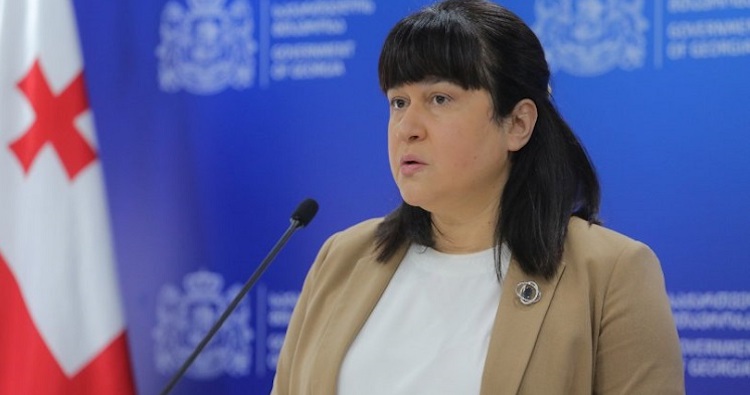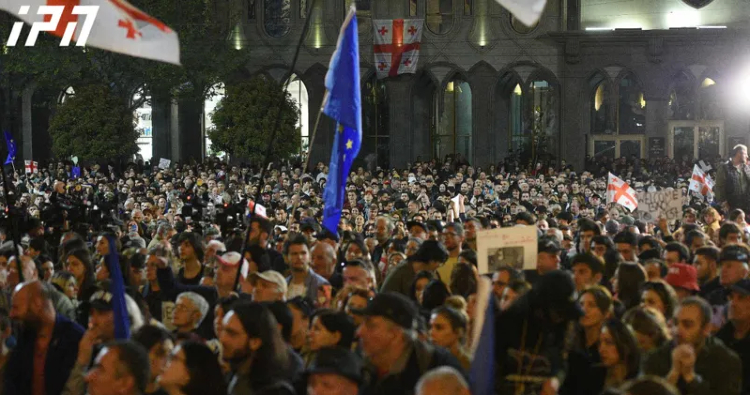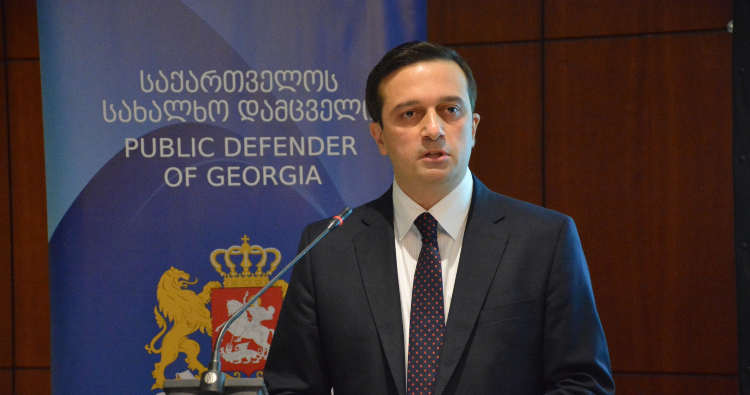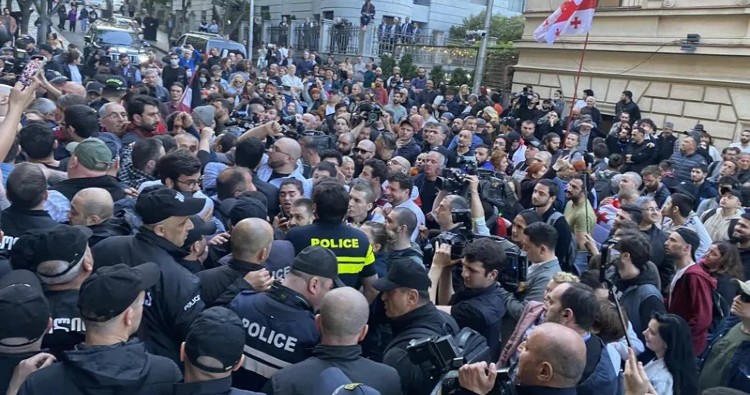Deputy Health Minister: 12 emergency crews provided assistance during transparency bill protests

Georgian Deputy Health Minister Tamar Gabunia on Wednesday denied reports that suggested a lack of access to medical assistance for citizens during public protests between Monday and Tuesday in Tbilisi against the bill on transparency of foreign influence. Photo: Ministry of Health
Georgian Deputy Health Minister Tamar Gabunia on Wednesday denied reports that suggested a lack of access to medical assistance for citizens during public protests between Monday and Tuesday in Tbilisi against the bill on transparency of foreign influence.
Gabunia said 12 emergency crews had provided aid to “dozens” of people who required assistance with “high blood pressure, headaches or high emotional stress” during the protests that saw clashes with law enforcement and arrests made outside the Parliament.
Five citizens were transferred to different medical venues in Tbilisi with various types of injuries, the official said, and also noted help provided to police.
One citizen had a nasal bone fracture and received appropriate medical assistance. Another had multiple [...] injuries to the head and was diagnosed with concussion. The third citizen had brain and face injuries, and concussion was established. The fourth citizen had a fracture of the right ulna, and osteosynthesis was performed. The fifth citizen had a head injury and was diagnosed with a concussion after a brain CT scan”, she said.
Two police officers were injured and taken to the Caucasus Medical Centre by ambulance yesterday. One of them had a head and nose injury, and both were discharged in satisfactory condition this morning”, Gabunia added.
The protest was organised against the legislative initiative that calls for registration of non-commercial legal entities and media outlets in the country as “pursuing the interests of a foreign power” if they derive more than 20 percent of their funding from abroad.
- Georgian Parliament’s Legal Issues Committee starts deliberations on controversial transparency bill
The bill has been reintroduced by the ruling Georgian Dream party after its retraction following protests last year, and has been met by criticism from the opposition, the domestic NGO sector and a part of Georgia’s foreign partner states and diplomatic representations.
 Tweet
Tweet  Share
Share




